The Future we Choose – An Economy Aligned with Ethical Values
The Economy for the Common Good contributes to a culture of good living in a peaceful and sustainable civilization. This is characterized by human coexistence, trust and appreciation, strong social cohesion and basic human rights.
A Common Good society allows all people to
- interact with each other with tolerance and mutual respect for diversity and diverse lifestyles
- define their personal values, set their individual goals, find their identity and develop their full potential
- develop their talents and skills and, in this way, help them contribute to the Common Good in a meaningful and cooperative manner
- actively engage in politics, making democratic decisions and thus helping shape our future
The Economy serves the Common Good
The economy serves the Common Good and no longer simply the accumulation of money and capital. Inequalities in income, wealth and power are kept to a minimum. Consumption of natural resources remains within the regenerative capacity of natural ecosystems and planetary boundaries. Current and future generations enjoy equal opportunities.
Creative business activity leads to innovative solutions for the Common Good. It develops in different types of organizations within reasonable sizes. The companies cooperate intelligently and contribute to resilient structures.
Living in dignity is possible for all people in a common good economy. Work is meaningful and takes place in a multitude of arenas such as private businesses, publicly-owned enterprises, cooperatives, the commons, at home and in volunteer services.
Freedom takes on a deeper meaning. Not only can people shape their own lives, but also collectively design the economic, financial and commercial order. Personal, inner development receives the same attention as the outer environment. People are freed from the unhealthy compulsion to constantly consume, accumulate capital and grow economically.
Read the ECG Vision in full“The economic anarchy of capitalist society as it exists today is, in my opinion, the real source of the evil.”
— Albert Einstein, 1949
10 Cornerstones of the ECG
Frequently Asked Questions on ECG Theory
Democratic Assemblies – Sovereign Democracy
“Post-democracy” is a field of political science which discusses the crisis state of democracy. Brexit and the elections of populists around the globe are symptoms that democracy does not function as many would like it to. There are, however, signals of hope. In Munich, Germany the people forced the closure of the coal power plant, in Ireland the Citizen Assemblies have proven very effective, and in Iceland, a People’s Constitution has been drawn up by a citizens’ convention.
Economy for the Common Good has developed the concept of “sovereign democracy”. It states that citizens are the sovereign and therefore hold the final say in decisions of national import. The concept of sovereign democracy can be developed step by step over the next years and can then be put into practice. The initial idea consists of a series of reforms and new rights for the sovereign. One of these is the instrument of the “Democratic Assembly”, in which the fundamental questions in a particular city, region or country are discussed and voted on by the population.
Implementation approaches for Democratic Assemblies:



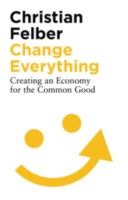



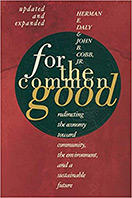
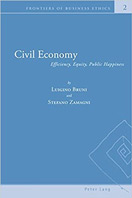



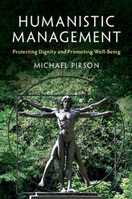

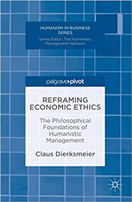

No comments:
Post a Comment